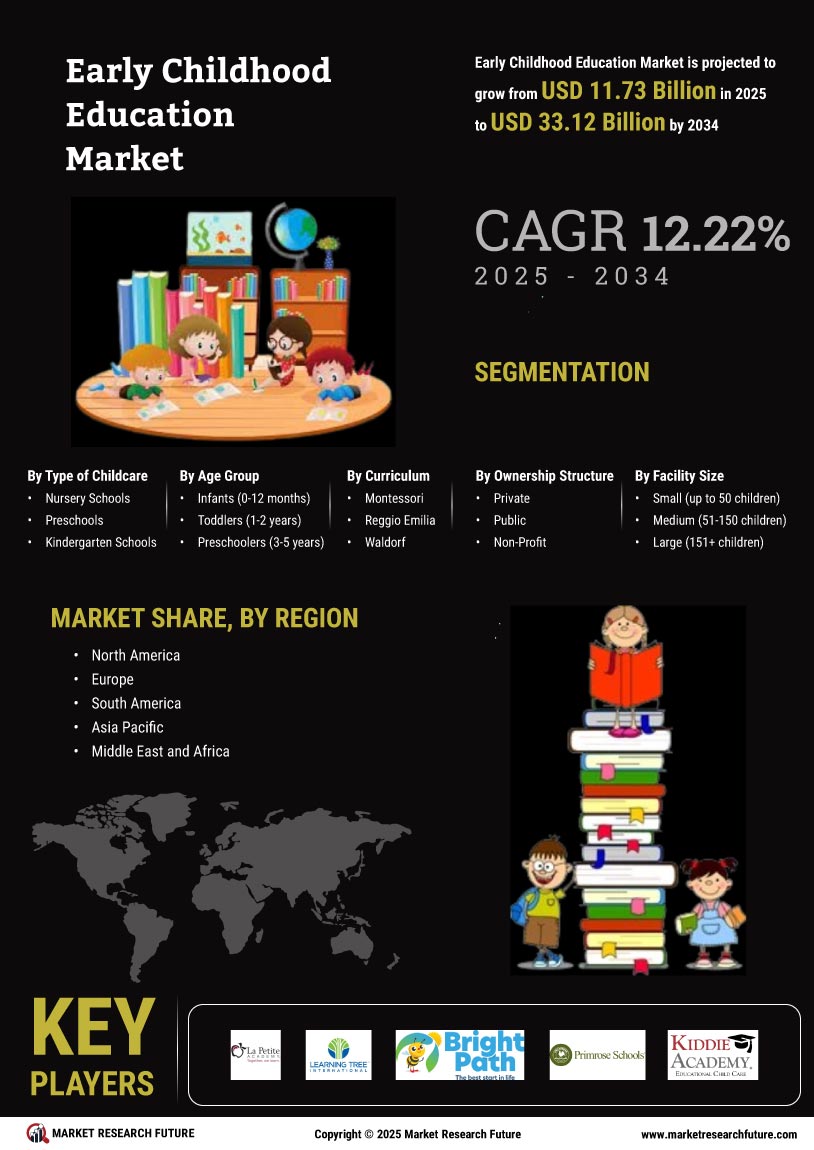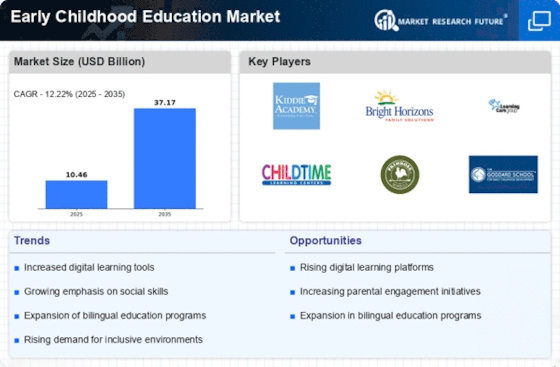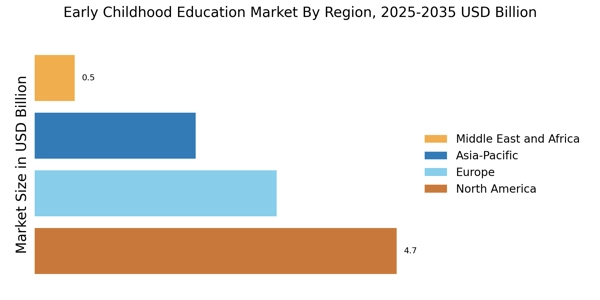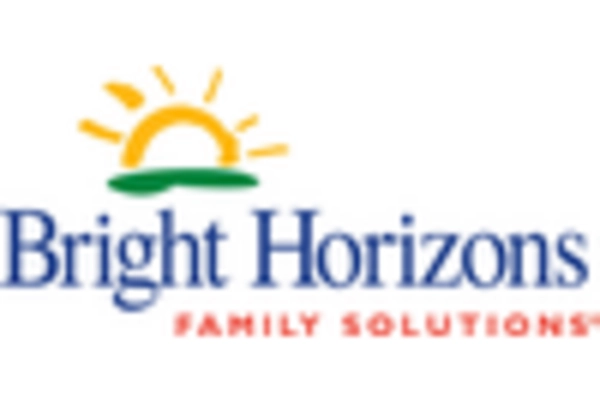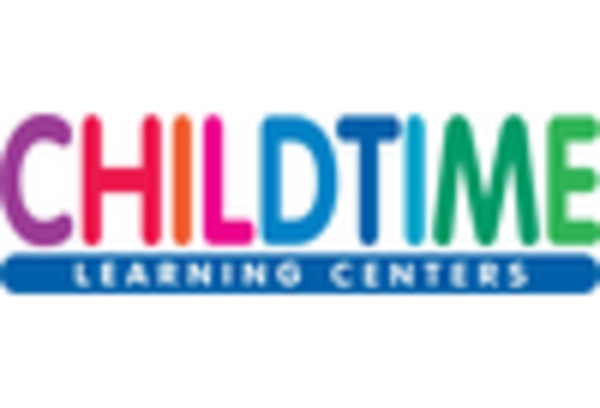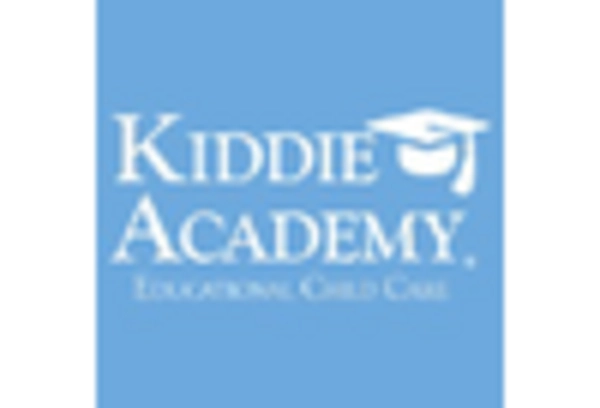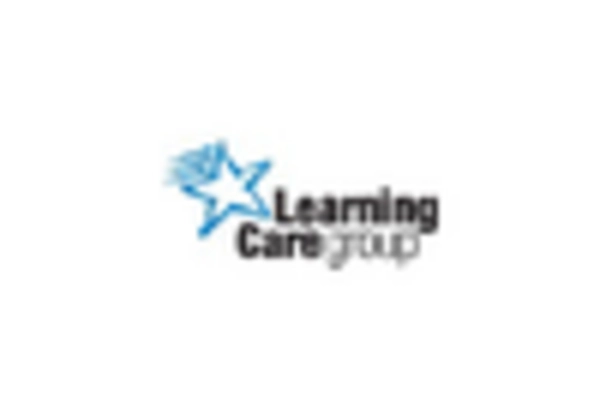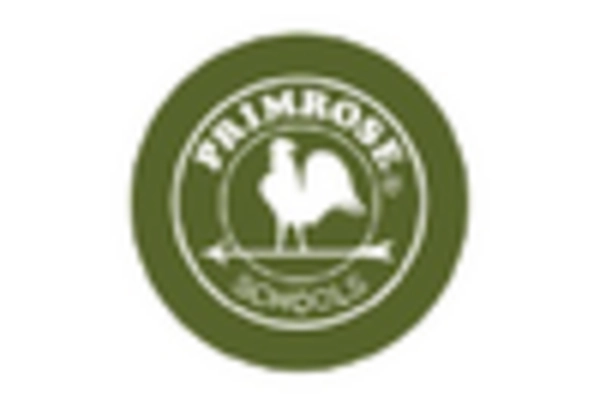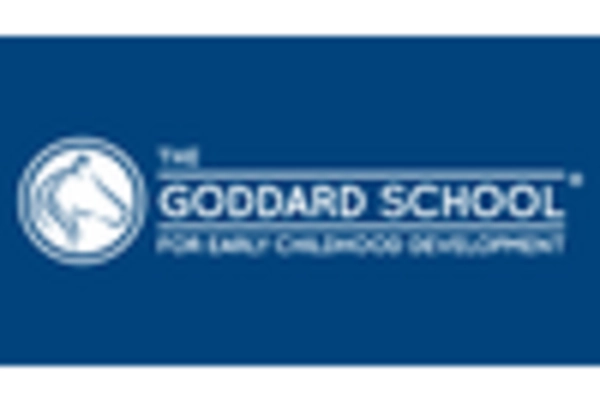Growing Parental Awareness
The Early Childhood Education Market is experiencing a notable increase in parental awareness regarding the importance of early learning. Parents are increasingly recognizing that foundational skills developed in early childhood can significantly influence a child's future academic success. This awareness is driving demand for quality early education programs. According to recent data, approximately 75% of parents believe that early education is crucial for their child's development. This trend suggests that as parents become more informed, they are more likely to invest in early childhood education, thereby propelling the market forward. Furthermore, the rise of educational resources and parenting workshops has contributed to this heightened awareness, creating a more informed consumer base that prioritizes early childhood education.
Focus on Social-Emotional Learning
The Early Childhood Education Market is increasingly emphasizing social-emotional learning (SEL) as a critical component of early education. Research indicates that children who develop strong social-emotional skills are more likely to succeed academically and socially. Consequently, educational programs are incorporating SEL into their curricula, fostering skills such as empathy, self-regulation, and interpersonal communication. This shift is reflected in the growing number of early childhood programs that prioritize SEL, with enrollment in such programs rising by approximately 10%. As awareness of the importance of social-emotional development continues to grow, the market is likely to adapt, leading to a more holistic approach to early childhood education.
Government Initiatives and Funding
Government initiatives aimed at enhancing early childhood education are playing a pivotal role in shaping the Early Childhood Education Market. Various countries have implemented policies that promote access to quality early education, often accompanied by increased funding. For instance, recent statistics indicate that public funding for early childhood education has risen by over 20% in several regions, reflecting a commitment to improving educational outcomes. These initiatives not only support the establishment of new educational facilities but also enhance existing programs, making them more accessible to families. As governments continue to prioritize early education, the market is likely to see sustained growth driven by these supportive policies and funding opportunities.
Rising Demand for Quality Education
The Early Childhood Education Market is witnessing a surge in demand for high-quality educational programs. Parents are increasingly seeking out institutions that offer comprehensive curricula, trained educators, and a nurturing environment. This demand is reflected in the growing enrollment rates in accredited early childhood education programs, which have seen an increase of approximately 15% in recent years. The emphasis on quality education is further fueled by research indicating that children who attend high-quality early education programs are better prepared for primary school. Consequently, educational institutions are responding by enhancing their offerings, which in turn drives competition and innovation within the market.
Technological Advancements in Education
Technological advancements are significantly influencing the Early Childhood Education Market. The integration of digital tools and resources into early education settings is becoming increasingly prevalent. Educators are utilizing technology to create interactive learning experiences that engage young learners. Recent data suggests that nearly 60% of early childhood programs have adopted some form of educational technology, ranging from interactive apps to online learning platforms. This trend not only enhances the learning experience but also prepares children for a technology-driven world. As technology continues to evolve, its role in early childhood education is likely to expand, further shaping the market landscape.
